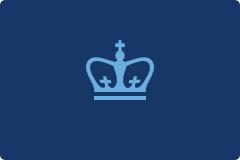A Q & A with Tony Paek, Data Scientist at American Express
March 29, 2016

Tony Paek studied industrial systems engineering at the University of Southern California. As a junior, he took a two-year leave to serve in the U.S. Army, on a base in his native South Korea. After graduating from USC in 2006, Paek went to work as a project engineer in Samsung Engineering’s power plant division. Over the next three years, he worked on construction projects in South Korea, Saudi Arabia and Mexico. He moved to New York in 2013 to study for a master’s degree at Columbia’s Data Science Institute. After graduating in December he found a job as a data scientist at American Express headquarters in New York.

Why did you decide to pursue a master’s in data science?
I liked the flexibility — data science skills can be applied to virtually any domain. Some of my friends from Columbia are now working in pharmaceuticals, insurance, non-profits, financial services and technology. There are such a wide variety of opportunities, but each domain requires its own deep expertise.
What do you do at American Express?
I work on digital partnership and development in the commercial data science group. Specifically, I work with marketing to understand customer segments to assess the cost and benefits of various marketing strategies.
What’s a typical day like?
Depending on where I am in a project, I could be helping my colleagues in marketing define a problem statement, pulling transaction or customer-segment data, or restructuring data to make it easier to interpret. I might be building a model to predict what customer demographic would respond best to a marketing campaign. During that process, I might ask colleagues why they structured data the way they did, or how they implemented a recommendation system. I often meet with colleagues informally over coffee to share experiences.
What’s your favorite type of data?
Credit card transaction data are interesting because they contain insights into customer behavior. I’d love to say more but that would breach company privacy policies. Incidentally, we take privacy very seriously. We make sure that no information can be traced to individuals.
What did you learn at Columbia that has helped at AmEx?
The foundational skills I picked up in computer science and statistics have been instrumental. Understanding computational and space complexity has helped me write programs under changing sets of constraints. Understanding data modeling has helped me avoid common mistakes like overfitting, or drowning out a model’s signal with too much statistical noise. Overfitting causes poor predictions. At Columbia I learned not to be afraid of new technologies. Every project required new skills and ways of thinking.

What was your favorite project at Columbia?
I designed a project (left) for my Exploratory Data Analysis & Visualization class called “Monetary Value of a Degree.” I read an article in The Economist claiming that the choice of major matters more than the university’s prestige in deciding future salary. I scraped the Economist’s dataset, brought in additional data, and created a visualization in ShinyApps.
Contrary to the Economist’s findings, I found a strong link between a university’s rank and the 20-year return on the cost of a degree using the same Payscale source. I also helped develop a Yelp restaurant recommendation system and a patent classification system for Goldman Sachs.
What’s the best part of working as a data scientist?
It’s exciting when insights I extract from the data are used in making strategic decisions. At the same time, it can be frustrating when those insights go against our intuitions. I love learning from my colleagues and getting better at my job.

What skills carried over from your work as a project engineer and unit manager in the U.S. Army?
Interpersonal skills helped me in both positions. Being able to articulate your ideas and put your job in a larger context are important skills. As a project manager I learned how to manage expectations and develop detailed plans to achieve my goals.
Do you have any advice for incoming students?
Be flexible and absorb as much as you can early in the curriculum. As you gain exposure to the field, figure out your focus. There are so many types of data scientists. In data analytics you get to shape a company’s strategic decisions. As a data engineer, you might be in charge of data flows and database design.As a data modeler, you might use machine learning to build prediction algorithms. If you go into deep learning you might even build the next AlphaGo.
Make sure you explore and take advantage of all NYC has to offer. I participated in off-campus hackathons and workshops, and completed two internships —at Kora Management, a hedge fund manager, and QuarterSpot, a small business lender. At both, I gained real-world experience that helped me get the job I have now.
— Kim Martineau